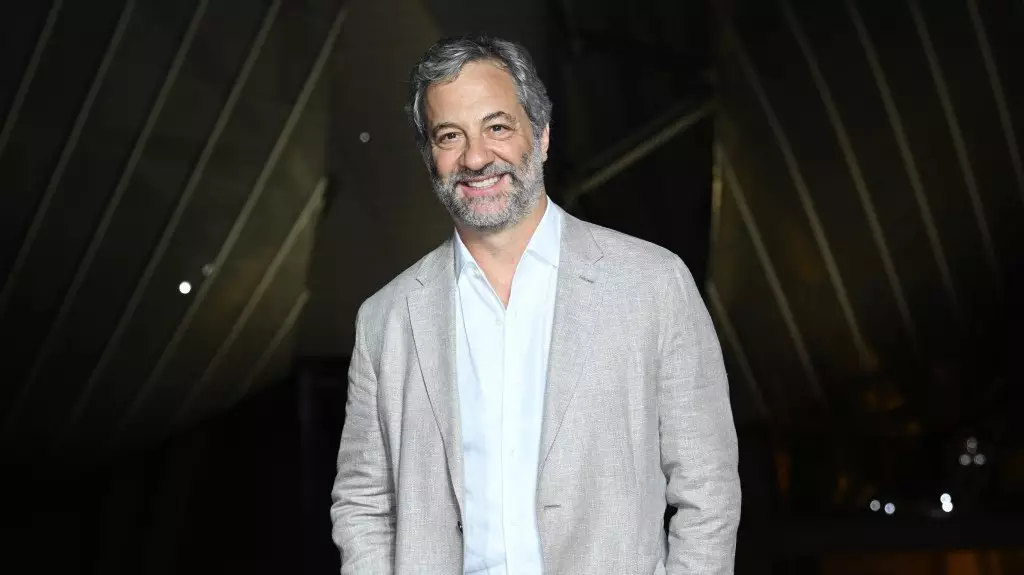In a recent episode of the Superfly podcast hosted by Dana Carvey and David Spade, acclaimed filmmaker Judd Apatow shared his concerns regarding the contemporary landscape of the entertainment industry. He articulated a disquieting trend he perceives in how stories are being produced, emphasizing a clear shift towards sensationalism over more nuanced storytelling. Apatow likened the current state of filmmaking to the sensationalism seen in the newspaper industry, where shock value often trumps substance. His analogy—echoing the adage “If it bleeds, it leads”—suggests that the industry’s preoccupation with intense, dramatic narratives is overshadowing the development of more grounded, human stories.
One of the key issues Apatow raised is the fixation on audience metrics and completion rates, which has become a driving force in contemporary filmmaking. He pointed out how the obsession with capturing and maintaining viewer attention leads to an environment where everything feels heightened, whether it’s a thrilling narrative or a deeply sexualized storyline. This intense focus, he argues, diminishes the value of quieter, subtler narratives that often resonate more intimately with audiences. Instead, we are inundated with content that leans heavily on adrenaline and overt emotions, potentially at the cost of rich character development and thoughtful storytelling.
Apatow’s commentary also brings to light the consequences of prioritizing intense, flashy content: a diminishing diversity in narrative styles. As he noted, much of the drama circulating in streaming platforms revolves around major celebrities or dark themes, such as crime and thriller motifs. By continually recycling these high-octane narratives, the industry unwittingly narrows the breadth of stories available, leaning into formats that are easier to market but may lack depth. The mention of Nicole Kidman’s plethora of psychosexual roles exemplifies this trend—her projects are celebrated for their intrigue, yet they reflect a broader pattern of reliance on sensationalism rather than diverse storytelling.
Spade’s contribution about platforms like TikTok further underscores how economic incentives guide content creation today. With algorithms designed to prioritize engagement over quality, creators are often incentivized to produce enticing yet shallow content to keep viewers hooked. The emphasis on short attention spans feeds into this vicious cycle, encouraging a form of storytelling that is more concerned with view counts than with the story’s intrinsic value.
As a prominent figure in comedy and film, Apatow’s reflections serve as a call to action for the industry to reassess its values. His own body of work—including hits like The 40-Year-Old Virgin and Freaks and Geeks—embodies the charm of character-driven narratives that captivate through authenticity rather than sheer spectacle. Moving forward, artists and producers must navigate this challenging landscape while striving to elevate stories that explore the human experience in its myriad forms. Apatow’s insights compel both creators and audiences to advocate for a richer storytelling vision, one that values presence over pandemonium, perhaps ushering in a renaissance of nuanced filmmaking in an era thirsting for depth.


Leave a Reply